Home

Newborn Diaper Rash: Causes, Treatment and Prevention Tips
In this Article
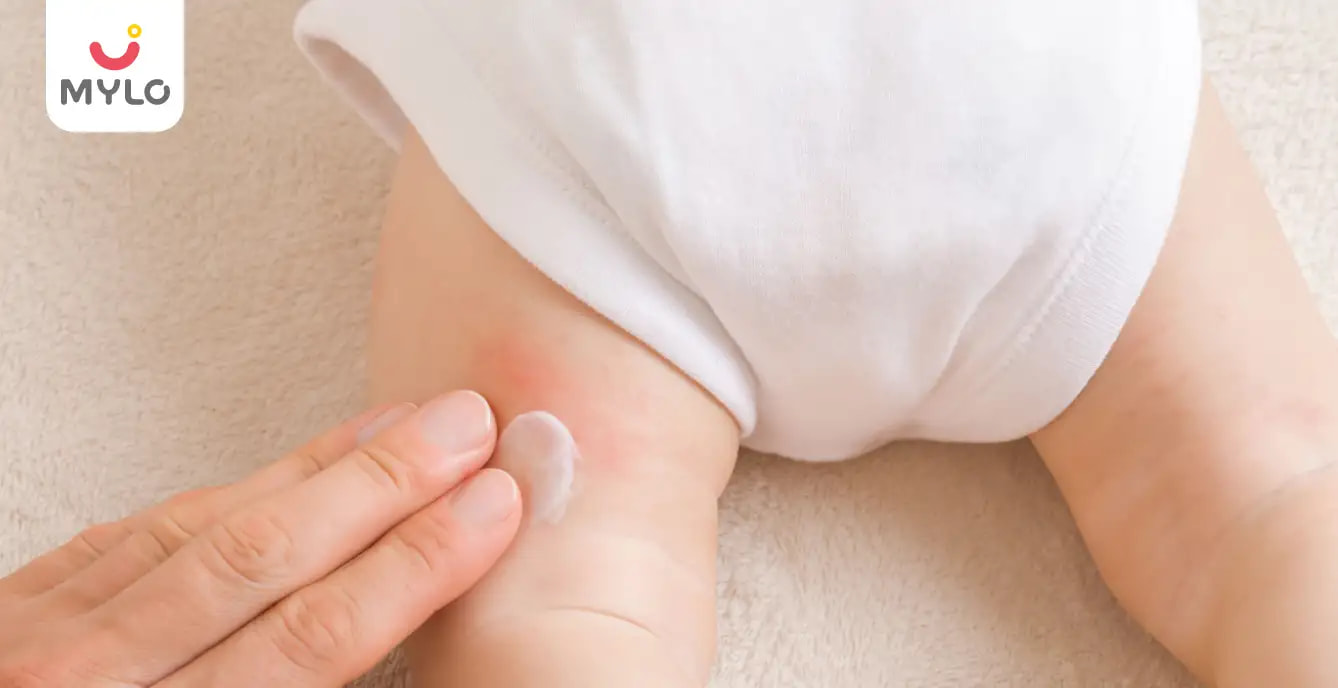
Baby Care
Newborn Diaper Rash: Causes, Treatment and Prevention Tips
Updated on 9 November 2023
Newborns bring boundless joy and love into our lives, but they also come with their fair share of challenges, one of which is the dreaded newborn diaper rash. Every parent's heart sinks at the sight of red, irritated skin on their baby's bottom. But by understanding the causes of this common infant ailment, learning effective treatment options, and exploring how to prevent diaper rash in newborns, you will be able to keep your little one's skin soft, smooth, and rash-free.
What is a diaper rash in newborns?
A diaper rash is a common skin condition that affects infants, typically appearing in the diaper area. It is characterized by redness, inflammation, and sometimes small bumps or blisters. It can cause discomfort and irritation for babies.
There are several types of diaper rash that can affect newborns, including contact dermatitis, candida-related rash, and seborrheic dermatitis. While these conditions may vary in appearance and severity, what causes diaper rash in newborns and how to treat them are often similar.
Diaper rash symptoms in newborns
Recognizing the symptoms of diaper rash is crucial for early intervention. Here are seven common signs to look out for:
1. Redness
The affected area may appear bright red or pink, indicating inflammation and irritation.
2. Rash
A rash may present as small bumps, blisters, or raised patches on the skin.
3. Warmth
The skin around the rash may feel warm to the touch.
4. Pain or discomfort
Babies with diaper rash may exhibit signs of discomfort, such as fussiness or irritability during diaper changes.
5. Prolonged redness
If the redness persists for more than a couple of days or worsens despite treatment, it could indicate a more severe rash or infection.
6. Open sores or ulcers
In severe cases, diaper rash can lead to open sores or ulcers, which may be accompanied by bleeding or oozing.
7. Spreading
If the rash spreads beyond the diaper area, it may indicate a more serious infection or condition.
If your newborn exhibits any of these symptoms, it is essential to consult a healthcare professional for a proper diagnosis and appropriate treatment.
What causes diaper rash in newborns?
Understanding the causes of diaper rash can help parents take preventive measures to protect their newborn's delicate skin. Here are five common causes of diaper rash in newborns:
1. Irritation from wetness
Prolonged exposure to urine or feces can irritate the baby's skin, leading to diaper rash. Changing diapers frequently and promptly can minimize the risk of irritation.
2. Friction
The constant rubbing and friction from the diaper against the baby's skin can contribute to diaper rash. Ensuring a proper fit and using soft, breathable diapers can help reduce friction.
3. Sensitivity to chemicals
Some babies may have sensitive skin that reacts to the chemicals present in certain diaper brands or wipes. Switching to fragrance-free and hypoallergenic diapers and wipes can be beneficial.
4. Yeast or fungal infection
Candida, a type of fungus, can proliferate in the warm, moist environment of the diaper area, leading to a yeast infection and subsequent diaper rash. Keeping the area clean and dry can help prevent such infections.
5. Introduction of new foods
When babies start solid foods, their bowel movements can change, potentially causing diaper rash. Introducing new foods gradually and monitoring any adverse reactions can minimize the risk.
By recognizing diaper rash symptoms timely and addressing these underlying causes, parents can significantly reduce the occurrence of diaper rash in their newborns.
You may also like: Can Rashes Be Prevented While Using Disposable Diapers for Your Baby?
How to prevent diaper rash in newborns?
Prevention is key when it comes to diaper rash. Here are five effective strategies to help prevent newborn diaper rash:
1. Frequent diaper changes
Changing your newborn's diaper promptly after each bowel movement or when it becomes wet is crucial. The less time your baby's skin spends in contact with urine and feces, the lower the risk of developing diaper rash.
2. Gentle cleansing
Use a mild, fragrance-free cleanser or simply warm water to clean your baby's diaper area during each diaper change. Avoid using wipes or products with harsh chemicals that can further irritate the skin.
3. Thorough drying
After cleaning, ensure that the diaper area is completely dry before putting on a fresh diaper. Gently pat the skin dry with a soft towel or allow it to air dry for a few minutes.
4. Diaper-free time
Give your newborn's skin a chance to breathe by providing some diaper-free time each day. Lay your baby on a soft, waterproof surface and observe for any signs of bowel movements to prevent accidents.
5. Barrier cream application
Apply a thin layer of an effective diaper rash cream to create a protective barrier between your baby's skin and the diaper. Look for creams with ingredients like zinc oxide or petroleum jelly, which can help soothe and protect the skin.
You may also like: Diaper Rash Treatment Tips for Your Baby
How to choose the best diaper rash cream for newborns?
Choosing the right diaper rash cream for newborn can make a significant difference in preventing and treating diaper rash. Consider the following tips when selecting a diaper rash cream:
1. Check the ingredients
Look for creams that contain protective ingredients like zinc oxide or petroleum jelly. Avoid creams with fragrances or potentially irritating additives.
2. Consider your newborn's skin sensitivity
If your baby has sensitive skin, opt for hypoallergenic and fragrance-free creams to minimize the risk of further irritation.
3. Texture and application
Choose a cream with a smooth texture that is easy to apply and spreads evenly on your baby's skin. Creams that are too thick or difficult to spread may cause discomfort during application.
4. Read reviews and recommendations
Take the time to read reviews or seek recommendations from other parents or healthcare professionals. Their experiences can provide valuable insights into the effectiveness of different diaper rash creams.
5. Consult your pediatrician
If you are unsure about which diaper rash cream to choose, consult your pediatrician. They can recommend a suitable cream based on your newborn's specific needs and any existing skin conditions.
Remember that every baby is unique, and what works for one may not work for another. It may require some trial and error to find the best diaper rash cream for your newborn, but with patience and persistence, you will discover the most effective option.
You may also like: The Benefits and Risks of Using Hydrocortisone Cream for Babies
Final thoughts
Newborn diaper rash can be distressing for both babies and parents, but with the right knowledge and preventive measures, it can be managed effectively. Remember to consult your healthcare professional for a proper diagnosis and treatment plan if your newborn develops a severe diaper rash. With consistent care and attention, you can ensure your baby's comfort and well-being.



Written by
Anupama Chadha
Anupama Chadha, born and raised in Delhi is a content writer who has written extensively for industries such as HR, Healthcare, Finance, Retail and Tech.
Read MoreGet baby's diet chart, and growth tips

Related Articles
Related Questions
Influenza and boostrix injection kisiko laga hai kya 8 month pregnancy me and q lagta hai ye plz reply me

Hai.... My last period was in feb 24. I tested in 40 th day morning 3:30 .. That is faint line .. I conculed mylo thz app also.... And I asked tha dr wait for 3 to 5 days ... Im also waiting ... Then I test today 4:15 test is sooooo faint ... And I feel in ma body no pregnancy symptoms. What can I do .

Baby kicks KB Marta hai Plz tell mi

PCOD kya hota hai

How to detect pcos

Related Topics
RECENTLY PUBLISHED ARTICLES
our most recent articles
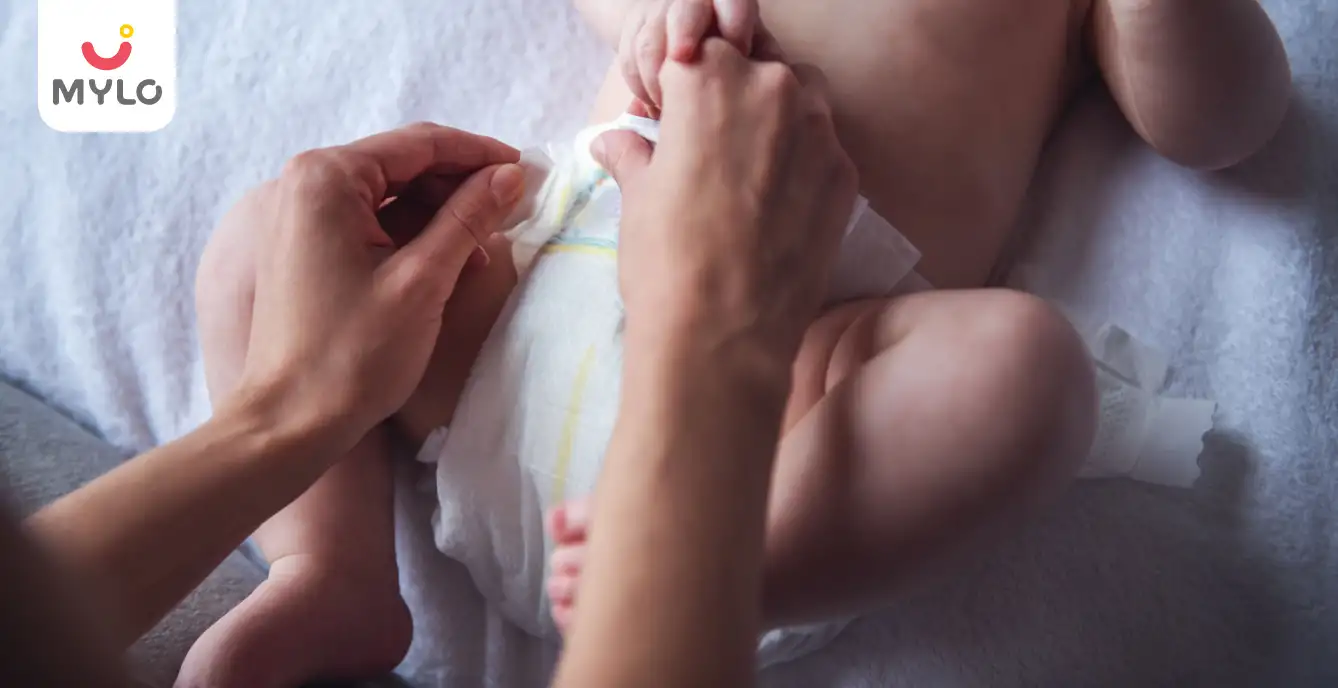
Diapering
New Born Baby Diapers: Understanding the Quantity and Sizing Needs of Your Little One

PCOS & PCOD
The Ultimate Guide to Supplementing with Omega 3 for PCOS
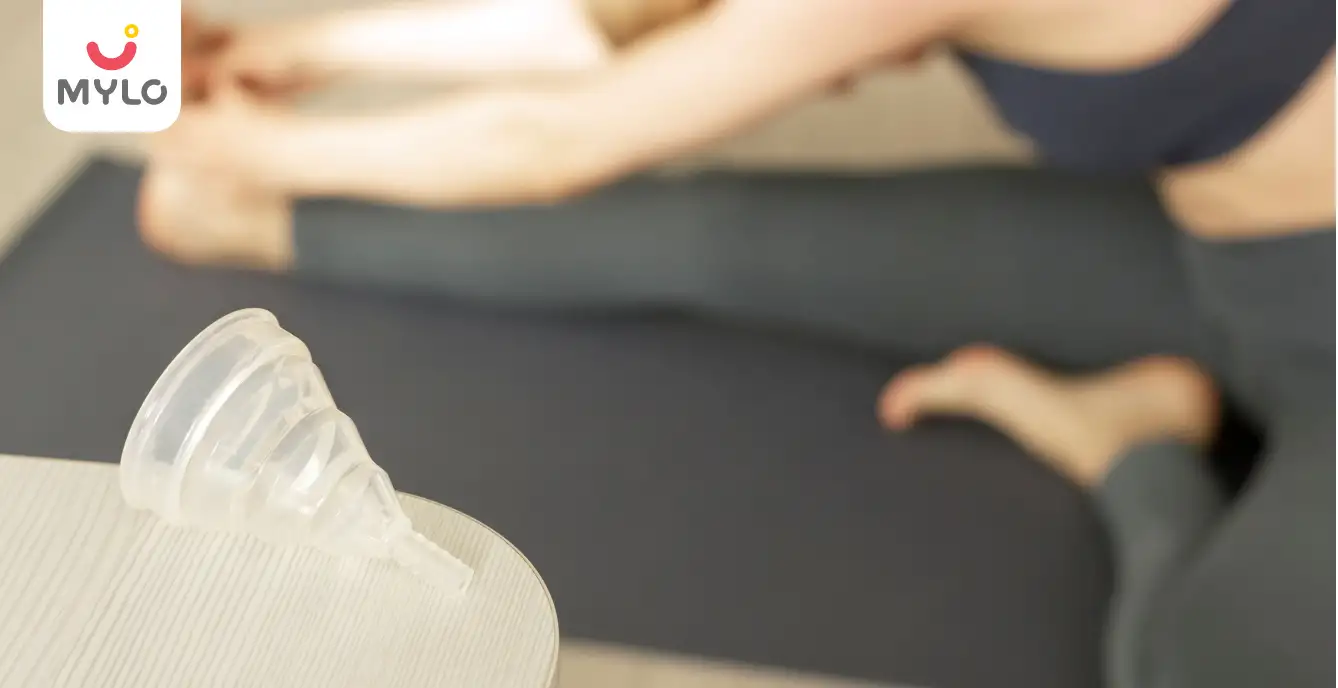
Exercise & Fitness
The Ultimate Guide to Safe and Effective Exercise in Periods
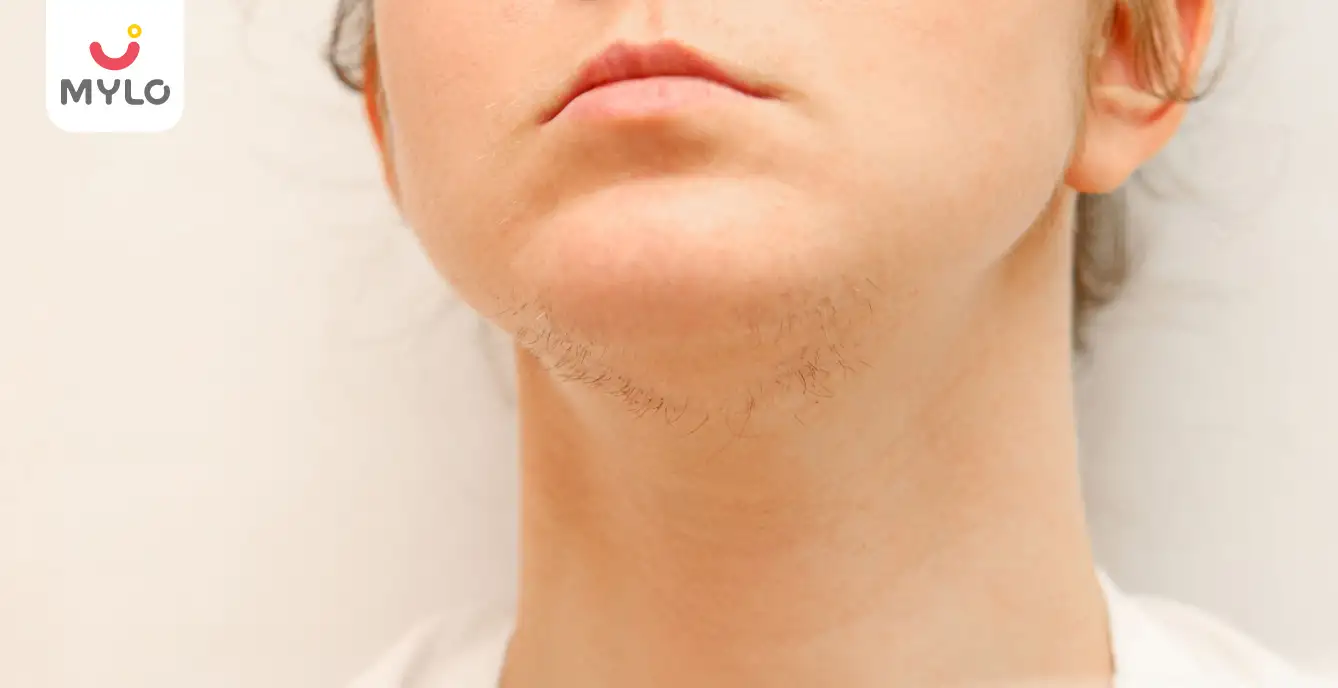
PCOS & PCOD
PCOS Hair Growth: Causes, Symptoms, and Effective Treatment Options
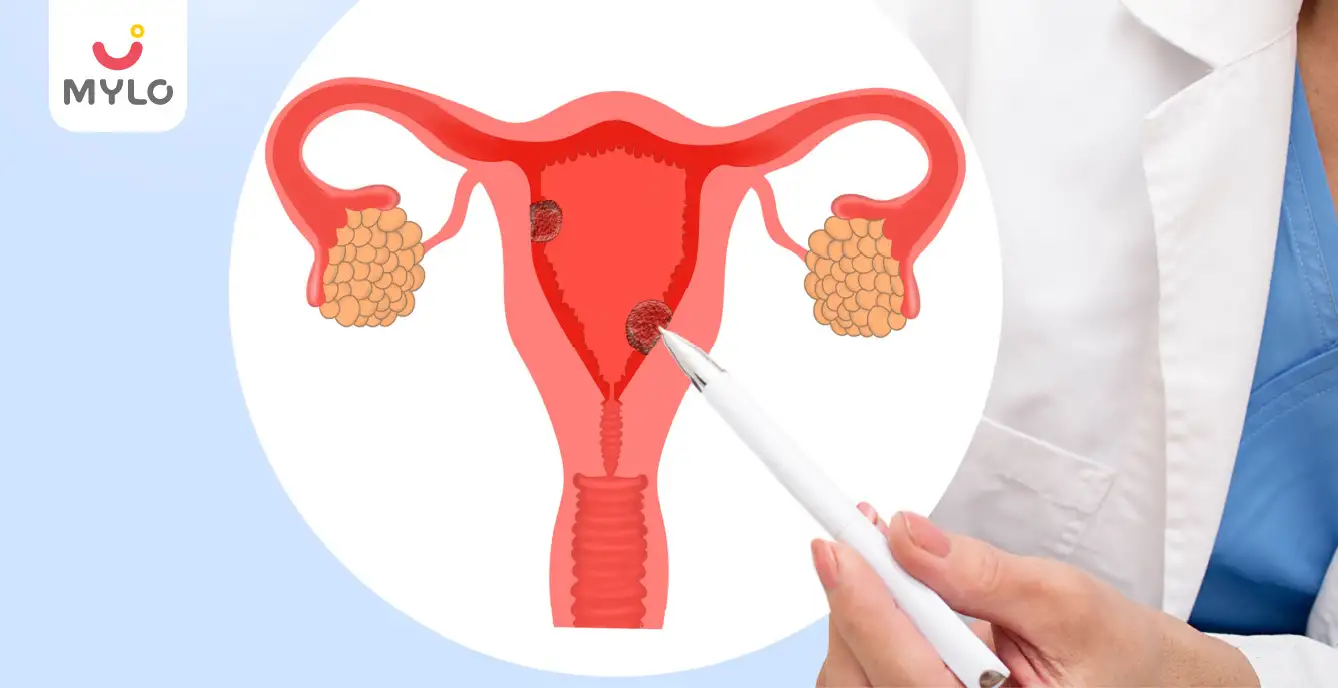
Women Specific Issues
Endometrial Hyperplasia: The Ultimate Guide to Understanding Its Causes and Treatment

Lifestyle
Lights, Camera, Baby Bump: Movies to Watch During Pregnancy
- Squat During Pregnancy Benefits & Precautions
- The Ultimate Guide to Thyroid Treatment in Ayurveda
- Ayurvedic Treatment for Acne: Holistic Healing for Clear Skin
- Gokshuradi Guggulu: Ayurveda's Solution for UTI and Kidney Support
- The Surprising Benefits of Dark Chocolate for Periods
- How to Reduce Air Pollution in Your Daily Life
- Normal Prolactin Levels to Get Pregnant: What You Need to Know
- What Causes Low HCG Levels in Early Pregnancy & How to Increase It?
- Top 10 Babymoon Destinations in India for Expecting Parents
- Understanding the Reasons & Solutions for a Baby Not Eating Food
- The Ultimate Guide on How to Delay Periods Naturally
- গর্ভাবস্থায় আলুবোখরা: উপকারিতা ও ঝুঁকি | Prunes During Pregnancy: Benefits & Risks in Bengali
- গর্ভাবস্থায় হিং | ঝুঁকি, সুবিধা এবং অন্যান্য চিকিৎসা | Hing During Pregnancy | Risks, Benefits & Other Treatments in Bengali
- স্তনের উপর সাদা দাগ: লক্ষণ, কারণ এবং চিকিৎসা | White Spots on Nipple: Causes, Symptoms, and Treatments in Bengali


AWARDS AND RECOGNITION

Mylo wins Forbes D2C Disruptor award

Mylo wins The Economic Times Promising Brands 2022
AS SEEN IN

- Mylo Care: Effective and science-backed personal care and wellness solutions for a joyful you.
- Mylo Baby: Science-backed, gentle and effective personal care & hygiene range for your little one.
- Mylo Community: Trusted and empathetic community of 10mn+ parents and experts.
Product Categories
baby carrier | baby soap | baby wipes | stretch marks cream | baby cream | baby shampoo | baby massage oil | baby hair oil | stretch marks oil | baby body wash | baby powder | baby lotion | diaper rash cream | newborn diapers | teether | baby kajal | baby diapers | cloth diapers |




